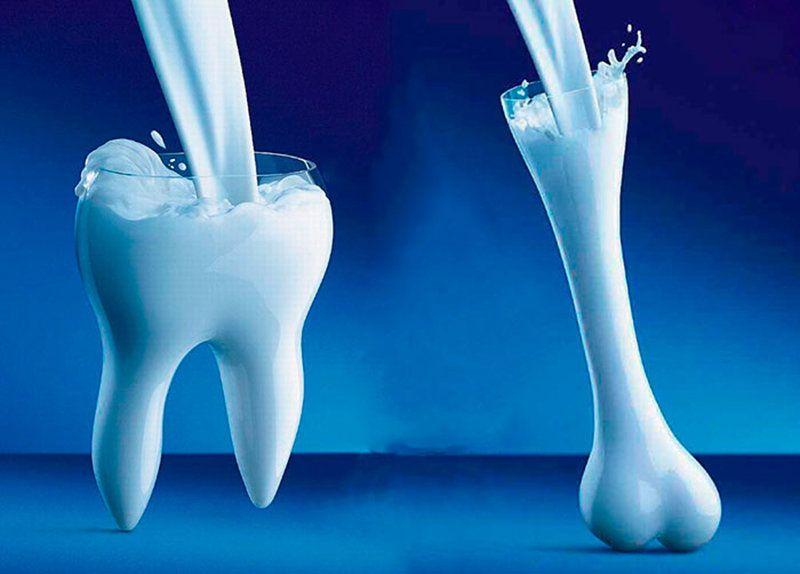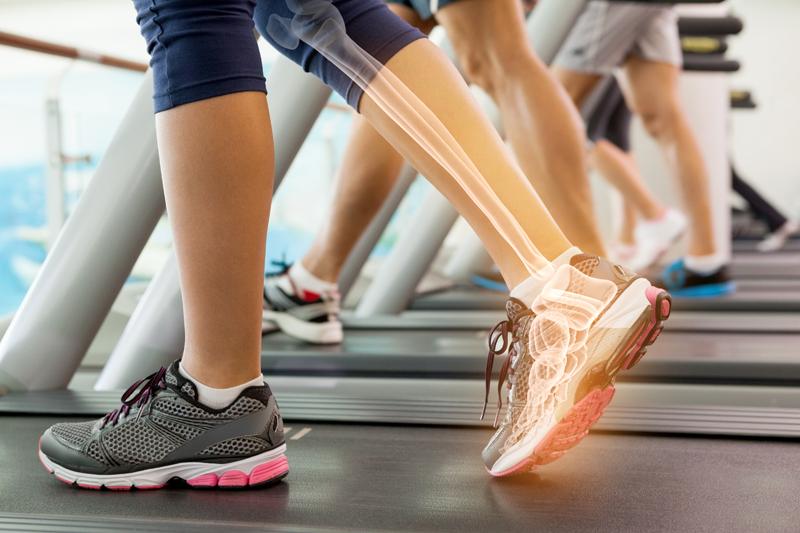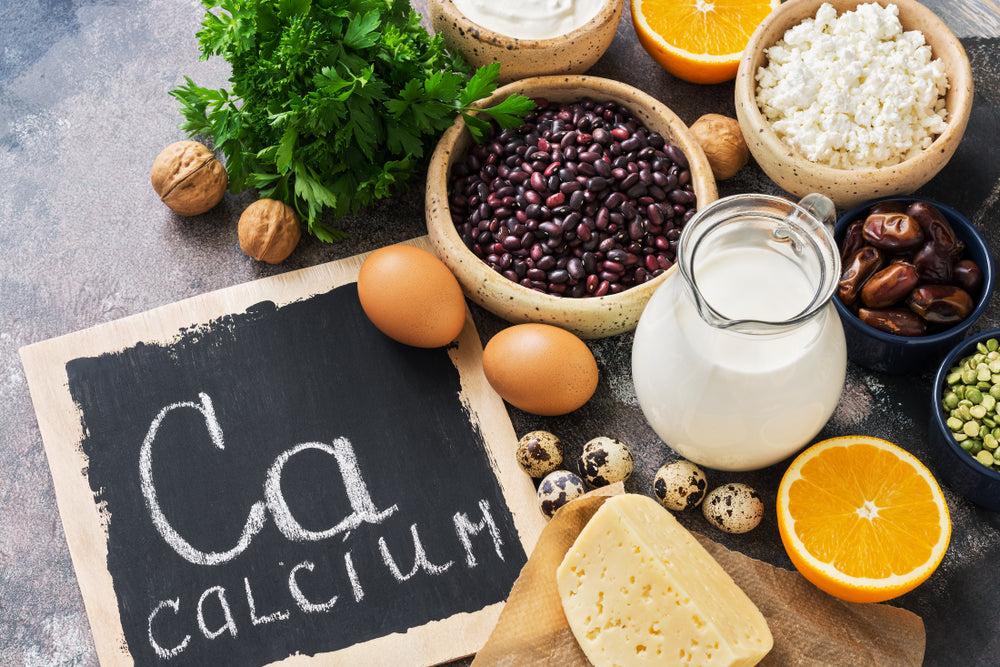What Sort Of Vitamins And Minerals Support Bone Density?
Houston Endocrine Center2022-07-28T20:52:53+00:00
Source: Pinterest
For many people, vitamins and nutrients are lacking in their diet. This can cause a number of health problems. For example, if you don’t get enough calcium, you can end up with osteoporosis.
When it comes to maintaining strong bones, there are a wide variety of vitamins and minerals out there that can help. Calcium and vitamin D are perhaps the most commonly known vitamins and minerals known for their anticancer properties. But this is just the tip of the iceberg in terms of ingredients that you should be getting into your diet to support bone density.
What Are Healthy Bones?
Bones are the framework of your body. They give you shape, support your muscles and organs, protect your soft tissues, and help to produce red blood cells. Bones also store minerals like calcium and phosphorus.
Healthy bones are strong and dense enough to withstand the force of gravity without breaking. They’re also flexible enough to bend and move with your joints as you move through life.

Source: Your Health
Bone tissue is living tissue that repairs itself after injury or fracture. Your body constantly replaces old bone with new bone tissue throughout life. As you age, this process slows down, resulting in weaker bones that can break more easily if you fall or bump into something.
There are two types of bone: cortical (compact) bone and trabecular (spongy) bone. Cortical bone is hard and dense; it makes up 80% of a typical adult skeleton. Trabecular bone makes up 20% of an adult skeleton. It’s less dense than compact bone but more flexible than compact bone because it has larger spaces between its plates called trabeculae (or “little beams”).
What Is Bone Density?
Bone density is the measure of how much your bones weigh. For example, if you have more bone mass than someone else, then it means that you have stronger bones.
Bone density is the measurement of the amount of bone in relation to the amount of space that exists in your body. This measurement is expressed as a T-score, which ranges from -1 to +1. A score greater than -1.0 means you have osteopenia or low bone density.

Source: Retrain Health
A T-score between -1 and -2.5 is considered normal. A score between -2.5 and -3.0 means you have osteoporosis or very low bone density. A score below -2.5 indicates that you have osteoporosis and should seek treatment to prevention of fractures.
The amount of bone tissue in your body and how strong it is can be affected by many things, including age, sex, diet, and lifestyle. If your bones are not as dense as they should be, or if you have osteoporosis, this could put you at a higher risk of developing fractures.
Why Is It Important To Take Care Of Your Bones?
Your bones are living tissue made of calcium and phosphate. As you age, your bones become less dense and more fragile.
As we get older, our bones can start to break more easily. This is called osteoporosis. Osteoporosis can make it hard for you to do simple things like climbing stairs or getting out of a chair. It can also cause pain in your spine, hips, ribs, and other joints.

Source: Pinterest
Osteoporosis can also cause broken bones from minor falls that would not normally cause fractures in younger people. These fractures may not heal properly and may lead to surgery as well as longer-term complications such as chronic pain and disability.
If you have osteoporosis or another form of bone disease that causes weak bones (such as Paget’s disease), it is important to take care of yourself so that you do not fall or have an accident that could break your bones.
Which Vitamins & Minerals Do You Need To Maintain Bone Density?
There are many factors that affect bone health, including genetics and lifestyle factors like smoking or drinking too much alcohol. But one of the best things you can do for your bone health is to make sure you’re getting enough nutrients from your diet. Here’s what you need to know about vitamins and minerals for bone health:
Calcium
The most important mineral for bone health is calcium. Calcium is needed to form the hard structure of the bones and teeth. It’s also important for the nervous system, blood clotting, muscle contraction, and hormone secretion. Calcium is a mineral that can be obtained from dairy products, green vegetables, nuts, and fortified foods (e.g., cereals). The recommended daily intake of calcium for adults over 19 years old is 1,000 milligrams per day. If you’re over 50 years old, you should increase your intake by 500 mg per day to help prevent bone loss.

Source: Shopify
Vitamin D
Vitamin D plays an essential role in helping the body absorb calcium from food or supplements. Vitamin D deficiency has been linked to low bone density in many studies, which means that it can play an important role in preventing osteoporosis. It’s found in fatty fish such as salmon, tuna, and mackerel; egg yolks; beef liver; cheese; mushrooms; fortified milk; orange juice, and cereals with added vitamin D. The recommended daily intake of vitamin D is 600 IU to 800 IU per day for adults and children over 4 years old. If you’re pregnant or breastfeeding, you should increase your intake by 1000 IU per day. The best way to get vitamin D is through sunshine exposure, but if that’s not an option, a daily supplement can help you reach your needs.
Magnesium
Magnesium is an essential mineral for human health, but it’s not as well known as calcium. Magnesium plays a key role in bone health, as well as in the contraction and relaxation of muscles and nerves. The body needs magnesium to produce energy, maintain healthy levels of potassium and phosphorus, and make protein. Magnesium deficiencies are linked with osteoporosis because they can cause increased excretion of calcium through the urine. This may lead to low calcium levels in the blood (hypocalcemia), which affects bone mineralization by weakening bones’ ability to absorb calcium from the bloodstream.
Potassium
Potassium is a mineral that helps transmit nerve impulses and regulate muscle contractions throughout your body. Potassium helps maintain normal heart function; it also aids in digestion by regulating fluid balance within cells and regulating acidity levels in the blood. Potassium deficiency can cause rickets — a disease characterized by soft bones caused by lack of vitamin D or calcium — or osteomalacia — a condition that causes softening of the bones due to inadequate intake of vitamin D or calcium. Magnesium deficiency can also cause rickets or osteomalacia because it interferes with absorption.

Source: Food Insight
Vitamin A
Vitamin A is important for maintaining bone density because it helps cells grow, multiply and differentiate. It also plays a role in maintaining healthy skin cells, which are primarily made up of collagen — the protein found in bone tissue. Vitamin A also helps with proper immune function and eye health. Food sources: Liver, butternut squash, kale, sweet potatoes (cooked), spinach, carrots (raw), broccoli, egg yolks (from organic eggs).
Iron
Iron is important for strong blood, which carries oxygen throughout your body. Lack of adequate iron can lead to anemia, which affects 1 out of every 5 women over age 50 and can cause fatigue and shortness of breath. Anemia may also reduce your ability to exercise because it limits the amount of oxygen reaching muscles during physical activity. Iron deficiency can also lead to brittle bones or osteoporosis (bone loss).
Zinc
Zinc is an essential mineral that plays an important role in bone density. In fact, zinc supplements have been shown to increase bone mineral content in osteoporosis patients. The recommended dietary intake for zinc is 8 mg daily for men and women over 19 years old. However, some experts recommend a higher intake of 15 mg per day. It’s best to get your zinc from food sources as opposed to supplements since some forms of zinc can interfere with other medications.

Source: Balchem
Boron
Boron is another trace mineral that helps maintain bone density. It has been shown to increase bone mineral density in postmenopausal women who were given 10 mg of boron daily for one year. However, more research needs to be done on this subject before any definitive conclusions can be made regarding how much boron you should consume each day.
Silicon
Silicon is the main component of bone. It is a trace mineral that is needed for strong, healthy bones and teeth. The body does not produce silicon, so it must be obtained through food or supplements. Foods rich in silicon include whole grains, fruits, vegetables, beans, and nuts.
Phosphorus
Phosphorus (not to be confused with phosphates) plays a key role in the formation of new bone tissue, which plays an important part in maintaining healthy bones throughout your lifetime. The kidneys help regulate how much phosphorus the body uses and excretes via urine — this process is called excretion renin-angiotensin system (ERA) axis regulation by changing how much sodium is allowed into the bloodstream from dietary sources as well as from the kidneys.

Source: Shutter Stock
Vitamin K2 (MK-7)
Vitamin K2 is a fat-soluble vitamin that helps you form strong bones and prevents bone loss. It also plays an important role in cardiovascular health and preventing cancer. Vitamin K2 is sometimes called the “sunshine vitamin” because it’s produced by bacteria that live in the gut of animals that eat plants. These bacteria make K2 when they break down plant fibers in their guts, which then get absorbed into the body. The best way to get enough vitamin K2 is to eat plenty of green vegetables like kale, spinach, and broccoli, but most people don’t get enough of these foods. For this reason, supplementing with MK-7 is an excellent idea if you want to maintain bone health as you age.
How Can You Check Your Bone Density?
There are several ways to measure bone density:
DXA (Dual-Energy X-Ray Absorptiometry) Scan
This test takes about 20 minutes and involves lying flat on a table while an x-ray machine scans your spine and hip bones to create an image of your skeleton from head to toe. The scan can measure both the lumbar spine (lower back) and total hip (hip).

Source: National Sports Medicines Institutes
CT Scan (Computed Tomography)
CT scans use X-rays and computer software to create cross-sectional images of the inside of your body. A CT scan may be used instead of an MRI if you’re pregnant or have had recent surgery or an infection in the area where you’ll be scanned, or if you have metal implants in your body that could interfere with an MRI scan.
MRI (Magnetic Resonance Imaging)
An MRI uses magnetic waves and radio waves to create detailed images of internal organs, soft tissue, and bones. The test may be uncomfortable because you have to lie still for a long time while the machine takes pictures of your body.

Source: Medical News Today
Bone Mineral Density Test (BMD)
Bone mineral density (BMD) testing is a common way to measure the amount of calcium and other minerals in bones. A BMD test can help determine whether you’re at risk for osteoporosis, a condition that causes your bones to become weak and break more easily. The Food and Drug Administration (FDA) has approved the use of BMD tests to screen women who are at high risk for osteoporosis or are in menopause. The FDA has not approved BMD testing as a way to diagnose or monitor osteoporosis in men or children.
Conclusion & Takeaway
To ensure that your body is getting the right nutrients to support bone health, it is important to include a healthy diet rich in vitamin C and calcium and also a balanced exercise program. To get the most out of your food, you can use high amounts of sunshine, and you can consume large amounts of juicy fruits such as oranges, lemons, limes, and grapefruits since these fruits are excellent sources of vitamin C.
Also, foods such as dried figs and apricots are excellent sources of calcium. If you do not like either mineral, it is best to take one in supplement form. Be sure to consult with your physician before starting any new supplements or changing your diet plan – it is necessary to be sure that what you are doing can safely benefit you.
If you do not know any physician or want to change your doctor, you can visit us! At Houston Endocrine Center, we have experienced endocrinologists who can suggest you the best nutrition for healthy bone density. Our experts have dealt with different types of bone mineral disorders and have successfully treated a large number of patients. Through our website, you can schedule an appointment or contact us by phone. We are here to help you in every step of your journey toward good health.
